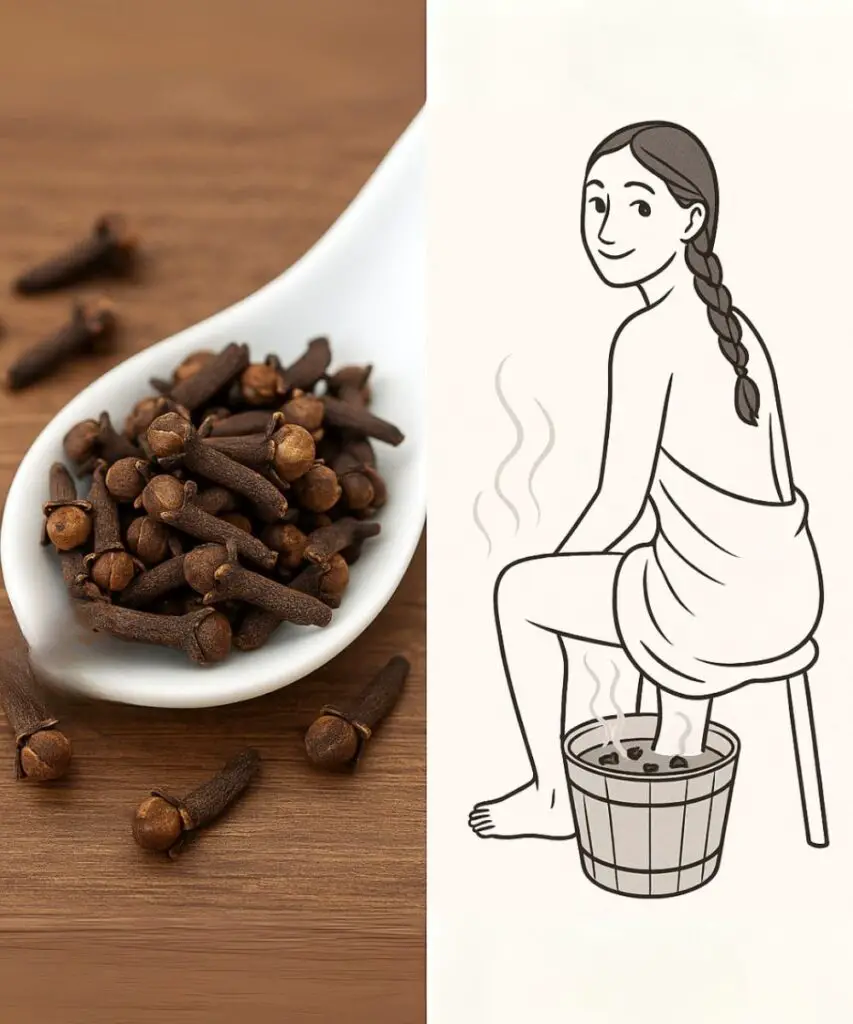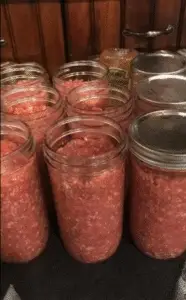
Before we dive in, let me just pause and say — thank you, cloves. So often overlooked, these little dried buds sit quietly in our spice cabinets, waiting to transform both our cooking and our health. If you’ve ever sipped clove tea on a chilly night, or pressed one gently against a toothache for relief, you already know the comfort they bring.
I’ve always believed that nature gives us gentle reminders of how to care for ourselves — and cloves are one of those reminders. Affordable, accessible, and oh-so-powerful. Today, I’m going to walk you through their benefits and share a few simple remedies you can make right at home.
💌 Want more natural healing secrets like this? Subscribe to my newsletter and get recipes and remedies delivered straight to your inbox!

What Are Cloves?
Cloves are the dried flower buds of the Syzygium aromaticum tree, native to the Maluku Islands of Indonesia. With their distinctive nail-like shape and bold, warming aroma, they’ve been treasured for centuries in both cooking and traditional medicine.
The secret lies in eugenol, a natural compound that gives cloves their spicy kick and powerful antibacterial, antifungal, and anti-inflammatory properties.
Why You’ll Love Clove Remedies
Here’s why I reach for cloves not just in my baking, but in my self-care:
- Naturally fights infections with antibacterial power
- Soothes pain and discomfort, especially toothaches and sore muscles
- Supports digestion and eases bloating
- Rich in antioxidants to combat oxidative stress
- Helps with respiratory relief, perfect for colds and congestion
I promised you versatile, and here’s proof — these remedies are inexpensive, effective, and can be whipped up with just a few kitchen staples.
What Do Cloves Taste Like?
Warm, sweet, and slightly peppery with a subtle bitterness. That bold flavor is what makes them shine in gingerbread cookies and stews — but it’s also the reason they’re so effective in natural remedies.
Health Benefits of Cloves
- 🛡 Antibacterial & Antifungal – Protects against harmful microbes.
- 💆♀️ Natural Pain Reliever – Clove oil and whole cloves can ease toothaches.
- 🌿 Digestive Aid – Stimulates digestive enzymes and relieves gas.
- 💖 Antioxidant Powerhouse – Helps slow cell damage.
- 🫁 Respiratory Helper – Clove steam can open airways during colds.
Ingredients You’ll Need
Think of this as your starter kit for natural clove remedies:
- Whole dried cloves
- Water
- Honey (optional, for tea)
- 70% alcohol (for tinctures)
Tools You’ll Need
- Small saucepan
- Strainer
- Mason jar or small glass jar with lid
- Clean towel (for steam therapy)
Additions & Substitutions
- Add ginger or cinnamon to clove tea for extra digestive comfort.
- Use apple cider vinegar instead of alcohol for tinctures.
- Add a few drops of eucalyptus oil to clove steam for sinus relief.
Step-by-Step: 3 Simple Clove Remedies
1. Clove Tea for Digestion & Relaxation
- Bring 1 cup of water to a boil.
- Add 3–4 whole cloves and simmer for 5 minutes.
- Strain, sweeten with honey if desired, and sip warm.
2. Clove Steam for Congestion
- Bring a pot of water to a simmer.
- Add 5–6 cloves.
- Lean over the pot, cover your head with a towel, and inhale deeply for 5–10 minutes.
3. Homemade Clove Tincture
- Place ½ cup of whole cloves in a clean glass jar.
- Cover with 70% alcohol (like vodka) or apple cider vinegar.
- Seal tightly and store in a cool, dark place for 2 weeks, shaking daily.
- Strain and use a few drops diluted in water as needed for digestive relief.
Safety Notes
- Clove oil is very strong — always dilute before use.
- Avoid high amounts if pregnant or if you have liver issues.
- Always check with a healthcare professional before starting new remedies.
Storage Instructions
- Store dried cloves in an airtight jar away from sunlight — they’ll stay potent for up to 1 year.
- Homemade tinctures last up to 6 months in a cool, dark place.
- Clove tea is best consumed fresh, but can be refrigerated for 24 hours.
Frequently Asked Questions
Q: Can clove tea be consumed daily?
Yes, but limit to 1 cup per day to avoid irritation.
Q: Is clove oil safe for children?
Only when heavily diluted and used externally — never give internally without guidance.
Q: Can I chew on whole cloves for a toothache?
Yes! Just press a clove gently near the sore tooth for numbing relief.
Conclusion
Cloves may be tiny, but their healing power is mighty. Whether you’re soothing a cold, easing a sore stomach, or simply enjoying their warm flavor in tea, these little buds remind us that nature often knows best.
So next time you reach for cloves in your spice jar, remember: you’re holding more than a cooking ingredient — you’re holding a natural remedy that has stood the test of time.
Join the Community
If you try these remedies, share your experience in the comments below! And don’t forget to pin this article on Pinterest so you can come back whenever you need a little natural healing boost.
Nutritional Highlights (per teaspoon of ground cloves, approx.)
- Calories: 21
- Fiber: 2g
- Vitamin K: 12% DV
- Manganese: 55% DV
- Antioxidants: Among the highest levels of any spice
✨ Nature’s pharmacy really is in our kitchens.





Leave a Reply